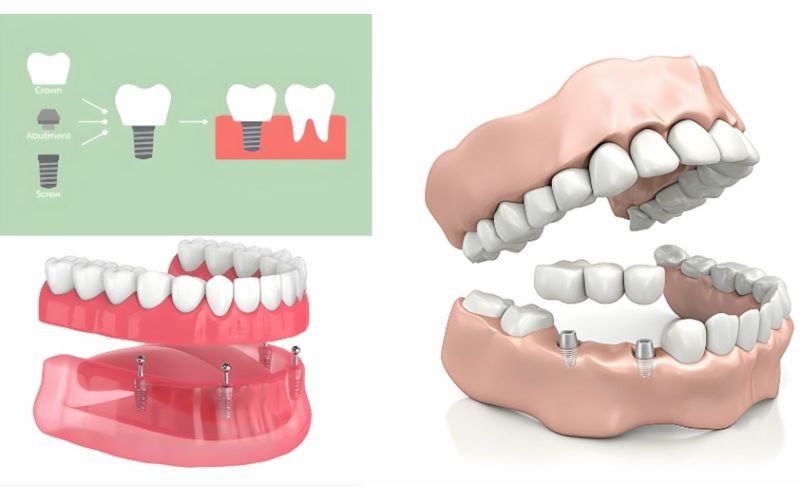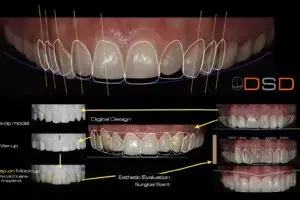Dental implants have become a revolutionary solution for individuals dealing with tooth loss. These implants not only restore functionality but also enhance the overall aesthetics of a smile. In this article, we will delve into the various types of dental implants available and explore the numerous benefits they offer.
Types of Dental Implants

Endosteal Implants
Endosteal implants are the most common type, directly placed into the jawbone. These provide a sturdy foundation for artificial teeth, making them a popular and effective choice.
Subperiosteal Implants
Subperiosteal implants are positioned on top of the jawbone, underneath the gum tissue. This type is suitable for individuals with insufficient natural jawbone height.
Transosteal Implants
Transosteal implants are less common, extending through the jawbone, and are often recommended in unique cases where other options may not be feasible.
Mini Dental Implants
Mini dental implants are smaller in size and are commonly used to stabilize lower dentures. They offer a less invasive alternative with a quicker healing period.
Benefits of Dental Implants

Improved Aesthetics
Dental implants provide a natural and aesthetically pleasing appearance. The artificial teeth are crafted to match the color, shape, and size of surrounding teeth, creating a seamless smile.
Enhanced Functionality
Unlike traditional dentures, dental implants offer improved functionality. They allow individuals to bite, chew, and speak with ease, restoring confidence in daily activities.
Long-lasting Solution
Dental implants are known for their durability. With proper care, they can last a lifetime, making them a cost-effective and long-term solution for tooth replacement.
Preservation of Jawbone
Implants stimulate the jawbone, preventing bone loss that often occurs with tooth extraction. This helps maintain facial structure and prevents additional dental issues.
Eligibility and Considerations
Before opting for dental implants, individuals need to meet certain health requirements. Factors like overall health, jawbone density, and oral hygiene play a crucial role in determining eligibility.
The Dental Implant Procedure
The dental implant procedure involves several steps, starting with an initial consultation and progressing through pre-surgical planning, implant placement, a healing period, and final restoration.
Aftercare and Maintenance
Proper aftercare is essential for the success of dental implants. This includes adopting good oral hygiene practices, attending regular dental check-ups, and considering lifestyle adjustments.
Common Misconceptions
Despite their numerous benefits, dental implants are often surrounded by misconceptions. It’s crucial to dispel myths such as the belief that the procedure is painful or that the results look unnatural.
Real-life Patient Experiences
Reading about real-life success stories and challenges faced by individuals who have undergone the dental implant procedure can provide valuable insights and reassurance.
Cost Considerations
Understanding the factors influencing the cost of dental implants, as well as exploring insurance coverage options, is essential for individuals considering this treatment.
Comparisons with Alternative Solutions
Dental implants differ from traditional solutions like dentures, bridges and porcelain veneers services. Comparing these options can help individuals make informed decisions based on their specific needs.
Latest Technological Advancements
Advancements in materials and techniques contribute to the continuous improvement of dental implants. From innovative materials to 3D printing, the field is evolving to provide better solutions.
Future Trends in Dental Implants
The future of dental implants looks promising with potential applications of nanotechnology and predictive analytics in treatment planning, offering even more personalized and efficient solutions.
Expert Opinions and Recommendations

Insights from leading dentists and testimonials from patients who have undergone the procedure can provide valuable perspectives for those considering dental implants. Buy Cenforce 200, Cenforce 100 mg, Cenforce 150, Fildena 100 mg, Vidalista 20 and Vidalista 60 @ Low Price Shipping USA, UK, Canada & all over the world
Conclusion
In conclusion, dental implants offer a transformative solution for individuals dealing with tooth loss. From the various types available to the long-lasting benefits, exploring this option can lead to improved oral health and overall well-being.
FAQs
Are dental implants suitable for everyone?
Dental implants may not be suitable for everyone, as eligibility depends on factors such as overall health, jawbone density, and oral hygiene.
How long does the dental implant procedure take?
The duration of the dental implant procedure varies but typically involves several stages, including an initial consultation, implant placement, and a healing period, spanning several months.
What is the success rate of dental implants?
The success rate of dental implants is high, with proper care and maintenance. It often exceeds 95%, making them a reliable and effective option for tooth replacement.
Can dental implants be done in one day?
While some procedures offer same-day implants, most traditional dental implant procedures involve multiple stages over several months to ensure optimal results.
Is there any age limit for getting dental implants?
There is no strict age limit for dental implants. Eligibility is based on individual health factors, and older adults can often benefit from this transformative dental solution.


